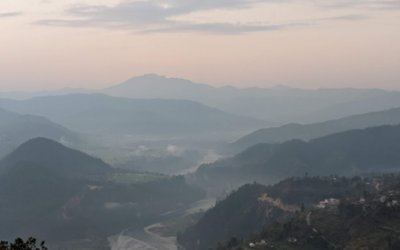This is a small grant, but it meets with ADB’s mandate of working with Government of Nepal for gender empowerment and social inclusion (GESI), to promote inclusive development where all citizens, especially those facing significant personal challenges have opportunities to improve their own lives and to contribute to development of Nepal.
Specifically, the project will provide increased legal protection and social services to women and children survivors of gender-based violence and abuse across an additional 15 districts of Nepal, on top of the 5 districts completed in the previous phase.
To give some background of this project, Nepal Police had successfully implemented the WCSC Project in five districts between 2010 and 2014, with main funding from the Government of Japan that was supplemented by the Government of the United Kingdom. On the basis of the success of this initial project, Nepal Police sought ADB support to find additional funding to expand the existing project to an extra 15 districts. For this request, DFID kindly accepted co-financing of the extended project, based on which ADB Board approved the additional financing for the Project in late March 2014.
On this occasion, I would like to express ADB’s appreciation today in four directions. ADB is highly grateful to the Government of the United Kingdom for providing the main funding for the expansion, through a GBP 2 million grant. DFID has been a long standing supporter for women’s rights and protection from violence including improvements to legal rights. We appreciate DFID’s strong commitment and expertise in the field, and partnership with ADB. We acknowledge that this grant is part of a larger national project called Justice for the Poor.
ADB has also received a small allocation for construction of centers in two districts, from the Gender and Development Cooperation Fund (Gender Fund) to which the governments of Australia, Canada, Denmark, Ireland and Norway contribute. My appreciation goes also to the governments of those countries.
To the Government of Nepal in particular Ministry of Finance we extend our appreciation for their strong support to improved services for women, and their commitment to modernizing Nepal Police, and their partnership with ADB.
And to Nepal Police, we extend our appreciation for your commitments to gender sensitive policing, and enthusiasm to expand the successful model to 15 additional districts. The first project was managed well. ADB was impressed that with few resources but with high commitment and dedication from the team, all milestones were met, and reports were always furnished on time. Large numbers of women received legal protection and social services, and Nepal Police made significant strides in instituting gender sensitive crime investigation. The combination of sound implementation and solid results gave us confidence to seek additional funds so that Nepal Police could expand the project into more districts. Now the project has ‘graduated’ from small Japan funded pilot to larger project, better integrated into Nepal Police structures. We hope that Nepal Police will replicate the same success demonstrated with the earlier project.
Please also let me share my personal experience of visiting the opening ceremony of the WCSC in Bera district that was about 2 years ago. I was really impressed by the enthusiasm and dedication of female police officers managing the WCSC, and the local committee formed under DDC by the civil society groups and the concerned district and line department representatives who are handling awareness campaigns on VAG and on the services outreaching to VDCs and villages. Leadership of the central project manager was also excellent. This is really a sustainable model, and we hope to see its replication in many more districts and ADB is glad to assist the process.
We note that GESI is an important interface between economic transformation and political transition in Nepal, without progress of which both process may be affected. Although its size is small (and may not meet the threshold of DCP), the project like this can have great impacts locally and can make a real change and drive the process of socio-economic transformation. Finally, please let me reconfirm that this is a very important partnership for ADB, and our officers here in Kathmandu as well as in Manila are committed to supporting you as necessary, and are committed to the success.
Kenichi Yokoyama is a Country Director, ADB Nepal Resident Mission. Excerpts of his statement at the signing of additional financing Nepal.















